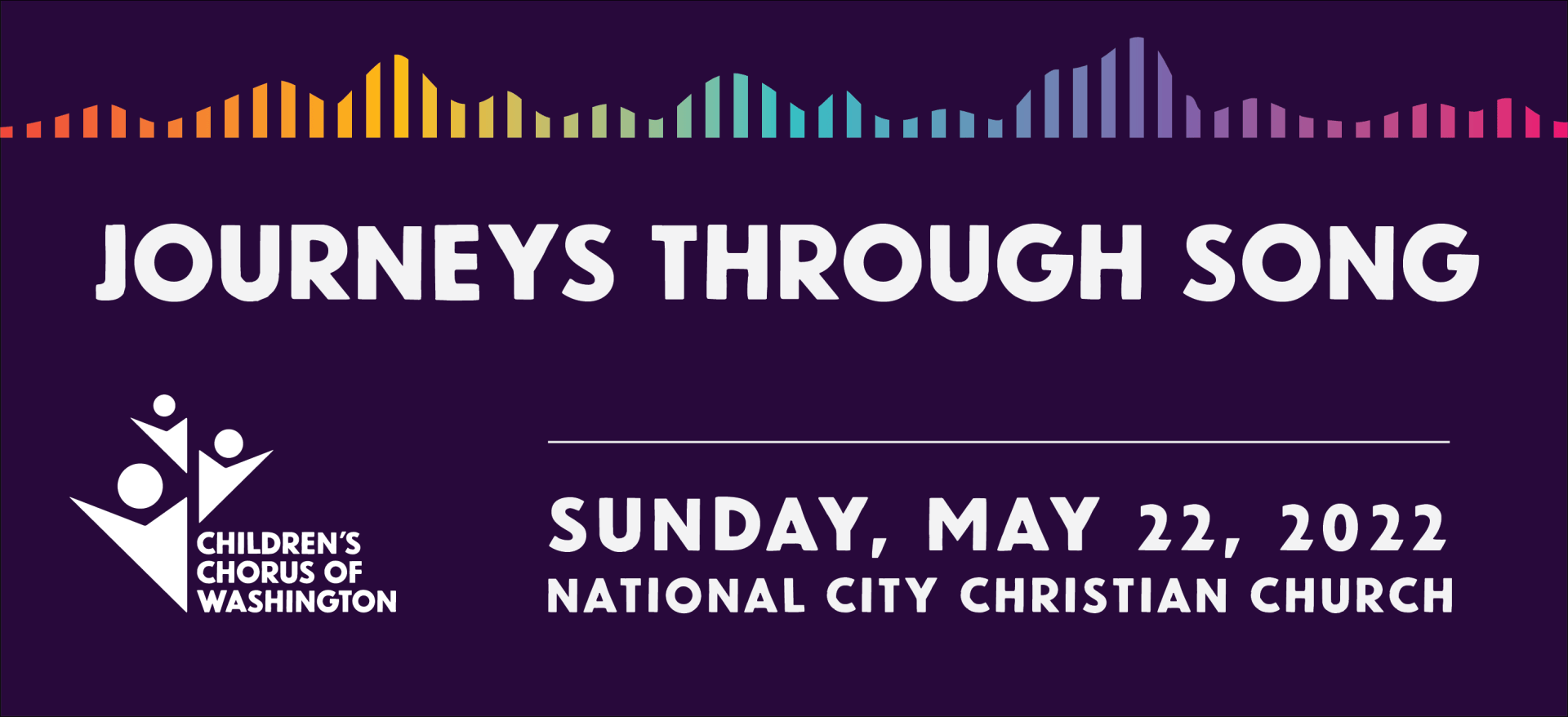
Journeys Through Song Digital Program
Welcome to our spring finale!
Post your photos and tag us on social media:
Facebook: @ChildrensChorusofWashington
Instagram: @childrenschorus
Use hashtag #ccwjourneys
Texts, Translations, and Program Notes
Come Travel With Me
By Scott Farthing
Let’s Go! Whoever you are, let’s go!
Come travel with me.
We will go down the open road,
We will go where high winds blow,
We will go down pathless and wild seas
The world before me!
There are things more beautiful and divine
Than words can ever tell.
There are things that will never die
There are things that will not grow old
Let’s go! We must not stop here, let’s go!
We will not fear!
Let’s go, I give you my hand,
I give you my heart,
I give you myself.
Let’s go, come travel with me!
Yonder Come Day
Based on the traditional Georgia Sea Island Spiritual
arr. Judith Cook Tucker
Some of the strongest retentions of African culture in the United States are found in the communities of the Georgia Sea Islands. The music of these islands includes spirituals, blues, call-and-response songs, field hollers, work chants, singing games, and stories. Judith Cook Tucker was inspired to compose this version after hearing an original version of the song by the Sea Island Singers in the 1970s.
The Journey
From Symphony in E minor by Antonín Dvořák and the Shaker hymn “Simple Gifts”
arr. Joseph M. Martin
'Tis a gift to be simple, 'tis a gift to be free,
'Tis a gift to come down where you ought to be,
And when we find ourselves in the place just right,
'Twill be in the valley of love and delight.
When true simplicity is gained,
To bow and to bend we shant be ashamed,
To turn, turn will be our delight,
Till by turning, turning we come round right.
Going home, going home, I am going home.
Going home, going home, nevermore to roam.
Though the road’s been so long, now I’m going home
To the place I belong, I am going home.
Arranger Joseph Martin combines one of the Shaker’s most well-known songs “Simple Gifts” with “Going Home.” “Going Home” was created from the “Largo” theme in
Antonín Dvořák’s Symphony No.
9 in
E minor, "From the New World",
Op. 95, popularly known as the
New World Symphony. The symphony was written in 1893 while he was the director of the
National Conservatory of Music of America in New York City. The text of “Going Home” is not original to the symphony.
Where’er you walk
From Semele
By G. F. Handel
Where’er you walk, cool gales shall fan the glade;
Trees, where you sit, shall crowd into shade,
Where’er you tread, the blushing flow’rs shall rise
And all things flourish where’er you turn your eyes.
Originally set as an oratorio, the opera,
Semele, takes its name from the Greek myth it's based on: the mother of Dionysus. This aria is sung by Jupiter as a way to reassure his lover, Semele, that he is all in and that the entire world is in love with her.
Walk, Children, Walk!
Traditional Spiritual
arr. Rollo Dilworth
Walk together children, don't you get weary
Walk together children, don't you get weary
Walk together children, don't you get weary
Know that there's a great camp meetin’ in the promised land.
Walk and never tire. I’ll walk and never tire
Walk and never tire. I’ll walk and never tire
Walk and never tire. I’ll walk and never tire
There’s a great camp meetin’ in the promised land.
Sing together children, don't you get weary
Sing together children, don't you get weary
Sing together children, don't you get weary
Know that there’s a great camp meetin’ in the promised land.
Sing and never tire. I’ll sing and never tire
Sing and never tire. I’ll sing and never tire
Sing and never tire. I’ll sing and never tire
There’s a great camp meetin’ in the promised land.
Shout together children, don't you get weary
Shout together children, don't you get weary
Shout together children, don't you get weary
Know that there's a great camp meetin’ in the promised land.
Shout and never tire. I’ll shout and never tire
Shout and never tire. I’ll shout and never tire
Shout and never tire. I’ll shout and never tire
There’s a great camp meetin’ in the promised land.
Well-known composer and arranger Rollo Dilworth takes this contemporary gospel style setting of "Walk Together, Children" and uses an easy ostinato pattern to support the traditional melody. The ending chorus is filled with hope as the choir joins the great camp-meeting in the promised land.
Bonse Aba
Traditional Zambian Folk Song
arr. Victor C. Johnson
Bonse aba, mu pokelela, Ba lipele maka akuba bana.
Kuba bana, kuba bana, kuba bana bakwa lesa.
Muya ya ya, muya ya ya, muya ya ya, bakwa lesa.
Translation:
All people who accept his authority are his children.
Are children in the power of God.
This is the second of Dr. Johnson’s songs performed by Beginning Bel Canto this year. In the winter, we performed his beautifully lyrical 3-part setting, "Stopping By Woods." Bonse Aba evokes a completely different mood, and we can experience Mr. Johnson’s versatility as a composer.
Victor C. Johnson
was born in Dallas, Texas. His first choral composition was published while he was in high school. Today, he is an award-winning composer, arranger, music educator, conductor - and an accomplished pianist and organist with over 400 published compositions. Victor currently serves as Minister of Worship and Arts at Shiloh Baptist Church in Plano, Texas, a position he has held since 2007.
The song text, Bonse Aba, is derived from the Bemba or Chibemba language - spoken in Zambia. It roughly translates to the following: All who sing have the right to be called the children of God. Since Bembe words have multiple meanings, it is difficult to translate word for word. Bonse Aba is a celebratory folk song of Christian origin. It can be sung in unison, 2, 3, 4, and 8 parts. Victor Johnson set this song for two parts, and we are grateful to be able to perform it for you today.
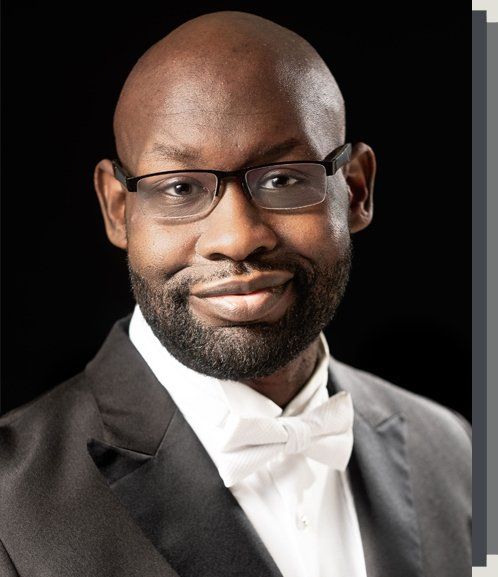
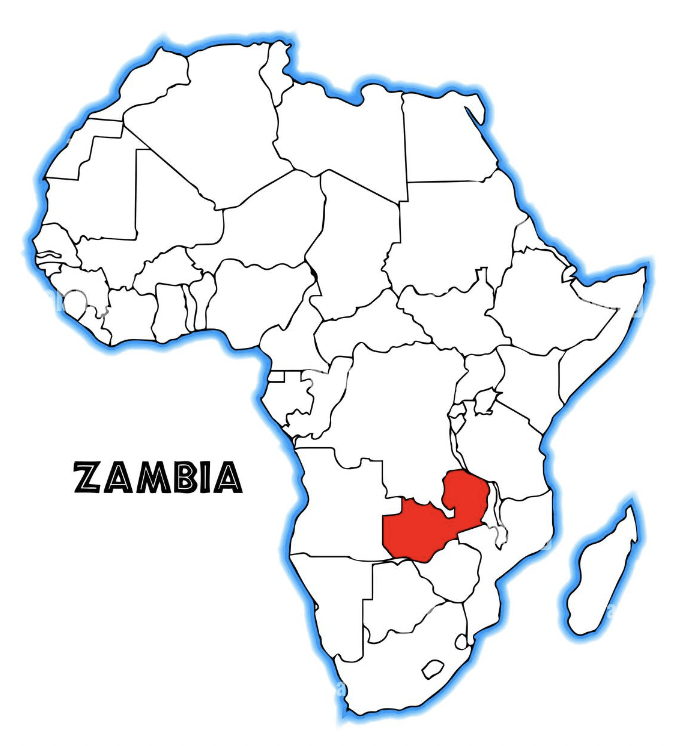
Bold Adventures
By Philip E. Silvey
"Once upon a time," four simple words
and I’m traveling there, anywhere!
Down the hidden path to uncertainty, through time.
Up the castle stairs, stepping carefully, I climb.
Moving with caution, not sure what I will find,
words take me there on those...
Bold Adventures to the unknown,
farther and faster than I have ever flown,
on such grand excursions to who knows where?
Finding myself in places I could never go,
face to face with characters I could not know,
words make it so.
Deep within the woods so mysterious, I hide.
Down the crumbling cliffs so precarious, I slide.
Finding my footing just in the nick of time,
words rescue me, on those...
Meanwhile… Behind you!
Suddenly! …out of the blue!
Moving with caution not sure what I will find,
words take me there on those...
“Once upon a time,” four simple words
and I’m traveling there, anywhere!
Words make it so!
Philip Silvey, an internationally sought-after composer, clinician, and conductor, teaches at Eastman School of Music in Rochester, NY. One of ten children, he was born in rural Pennsylvania in 1965. Taking note of Philip’s visceral connection to music, his mother registered him for piano lessons in the second grade. He tried to quit in 4th grade, but his parents held him to a three-year commitment, after which he never looked back.
With a love for singing and his rapidly developing piano skills, he accompanied his choir throughout junior high and high school. In his sophomore year, Philip began writing arrangements and original songs.
He continued to sing, play and compose in undergraduate school, where he majored in Theory, Composition, and Music Education. After receiving his Master’s in Composition from Penn State, he secured a full-time teaching job in Michigan, where he taught middle and high school choir. It was there that he began publishing his compositions. His career brought him to the University of Maryland, and then to Baldwin Wallace University before his present position at Eastman.
In reference to Bold Adventures, Philip writes:
As a kid, I spent many mornings searching the shelves of the school library to discover a new adventure. I took my favorite books out on loan more than once over the years, not just for the great characters and imaginative plots, but because I liked how the writer’s words made me feel. Well-written books can transport young readers, and I hope this composition inspires singers to open a new book and travel wherever it takes them!
https://www.esm.rochester.edu/directory/silvey-philip/#:~:text=BIOGRAPHY,graduate%20courses%20in%20music%20education. Eastman School of Music, PhilipSilvey.com
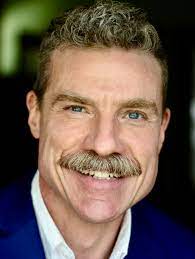
A Path To Each Other
By Jocelyn Hagen and Timothy C. Takach
Each word, a stone, We can build a wall, Or a path to each other.
This song reiterates the power of our words and how they can be used as a form of isolation or as a means of connectivity and compassion.
Timothy Takach (b. 1978) and Jocelyn Hagen (b. 1980) make a formidable husband and wife team. They share a love for beautiful music and deep respect for one another. They live in Minneapolis with their two children. Individually, they have complimentary though differing gifts and styles.
Jocelyn grew up as an only child in a small town in North Dakota. She began studying piano at the age of three, and in her teens, she was winning piano competitions all over the country. She describes herself as a child who spent a lot of time in her own head, perfecting her ideas until she was ready to share them with the world in a completed form. For this reason, Tim says that Jocelyn rarely shares her work with him before it is ready to be revealed, and while he hears a piece here and there, the finished work is always exciting for him.
Timothy grew up learning to love music by watching movies, listening to film scores and singing. The piano was his tool, and he enjoyed singing, arranging, and transcribing, but he had little interest in playing for 5 or 6 hours per day - which is requisite for a concert pianist.
Tim is a lover of collaboration, so he often bounces his ideas off of Jocelyn who says that Tim has an amazing grasp of the text, in terms of how it should be set and sung. He is gifted at finding inclusive and unifying poems for text.
The couple met during their undergraduate years at St. Olaf College in Northfield, Minnesota, where they majored in composition. Both are well-known composers today. They have numerous publications and received major grants and commissions from all over the world.
A Path To Each Other is written as part of their Collaboration Series. The words are sung in canon form - as a simple round, which invites empathy and emphasizes the potential for building community. We have all yearned for human connection, especially since the onset of the pandemic. This song speaks to that yearning: Each word, a stone. We can build a wall or a path to each other.
The Portfolio Composer: Episode 144; Jocelynhagen.com; TimothycTakach.com
Michael Patrick Culloton: JOCELYN HAGEN AND TIMOTHY TAKACH: AN INTRODUCTION TO THEIR CHORAL MUSIC AND A STUDY OF THEIR
POSITIONS WITHIN A LINEAGE OF MINNESOTA-BASED COMPOSERS, Fargo, ND: 2013

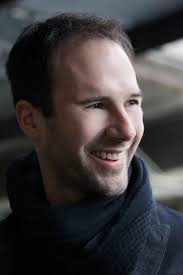
Follow the Drinking Gourd
By André Thomas
Follow the drinking gourd.
Follow the drinking gourd.
For the old man is awaitin’ for to carry you to freedom
If you follow the drinking gourd.
When the sun comes back and the first quail calls,
Follow the drinking gourd.
For the old man is awaitin’ for to carry you to freedom
If you follow the drinking gourd.
The riverbank will make a very good road,
The dead trees will show you the way.
Left foot, peg foot, traveling on,
Follow the drinking gourd.
The river ends between two hills,
Follow the drinking gourd.
There's another river on the other side,
Follow the drinking gourd.
When the great big river meets the little river,
Follow the drinking gourd.
For the old man is awaitin’ for to carry you to freedom
If you follow the drinking gourd.
André Thomas was born in 1952, in Wichita, Kansas to a single mom and two sisters. His mother sang regularly in church, and he grew up hearing the gospel choir sing. This was his introduction to music and singing. He took lessons here and there with members of the church, but his piano skills are largely self-taught until junior high when he began formal lessons at Wichita State University. In the spring of 8th grade, after only one year of lessons, he won a regional piano competition.
He continued in his junior high choir, and recalls a sense of discomfort about the spirituals taught in school:
...This was not the black music that I knew, and it certainly wasn’t the music that I experienced at my church! The text utilized dialect and it made me feel as if performing this music gave white people a chance to make fun of black people.
(André J. Thomas, Way Over in Beulah Lan': Understanding and Performing the Negro Spiritual. (Dayton, OH: Heritage Press, 2007).
He attended Friends University and was mentored by composer and conductor, Jester Hairston (1901 - 2000) who explained to him that dialect was “not a sign of inferiority but an accommodation for sounds that were not part of African speech”.
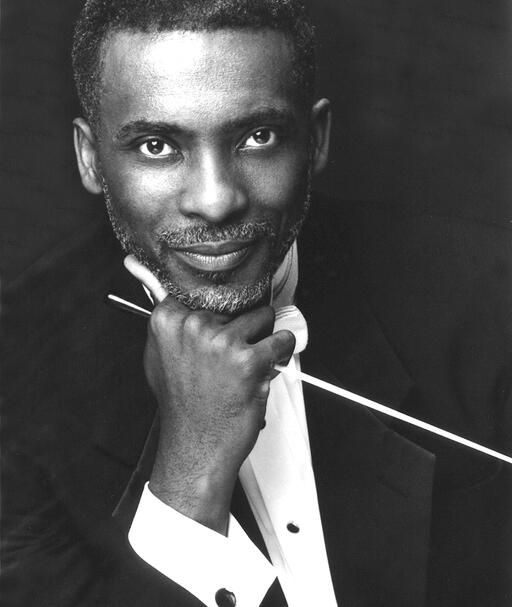
Says Dr. Thomas:
From an enslaved people grew the songs that became America’s voice all over the world. I went from being this kid who was embarrassed about his heritage to one [for whom] it became his life’s work. I will thank Jester Hairston for the rest of my life for taking this “know-it-all” kid to set him straight.
André Thomas- The Meaning and Impact of African American Spirituals - 11/12/19
Mr. Thomas earned his Master’s Degree from Northwestern University in Piano Performance in 1976, and then his Doctorate in Conducting and Education in 1983 from the University of Illinois. He recently retired as head of Choral Activities at the University of Florida in Gainesville, and he is presently a visiting professor at Yale. He has written several books, published hundreds of songs - most of which are gospel and spiritual songs, conducted major symphonies all over the world, and won international acclaim as a composer, conductor, and educator. We are thrilled to give you his arrangement of
Drinking Gourd
today.
This song,
Drinking Gourd, is heavily debated among experts as fact or fiction. It has been set literally hundreds of times since it first appeared in print in 1928 by HB Parks. The writer of these notes grew up with a literal sense of this song, and in researching these notes, has concluded that as in many accounts, both fact and folklore play a part. Many enslaved folks were freed through the underground railroad and different songs provided parts of clues regarding the escape routes to freedom.
The details of this song begin with an account in the 1870s, well after the Civil War. Mary Austin (1868-1934) first heard this song sung at the age of 5 or 6 by Moses W. Drakeford in her hometown of Carlinville, Illinois. In 1912, HB Parks (1856-1936) heard a similar tune sung in North Carolina, and then, he heard it again in 1913 in Louisville, Kentucky. Lee Hays, (1914 - 1981) of the Weavers, who was living in Forrest City, Arkansas in 1918, reports having heard
Follow the Drinking Gourd
sung by his aunt. HB Parks heard another version in 1918 wherein the lyrics were “Follow the risen Lord.” In 1928 it was first published by the Texas Historical Society.
Looking at the lyrics that are familiar to most of us, this defines a route. The “Drinking Gourd” is the Big Dipper, and “the star” is the North Star. “The river makes a mighty good road” because one cannot trace tracks or scents once a river is crossed. “The old man is a-waiting for to carry you to freedom” was added in 1947, but “the old man” could describe any member of the Underground Railroad. Regarding Peg Leg Joe, there is evidence that trees were marked with trailheads, but there is no indication of a specific person named Peg Leg Joe. However, many accounts were told with a conglomeration of characters, and again, there were multiple people involved in the Underground Railroad. HB Park’s family helped many enslaved families escape, so regardless of the exact points in history, the story makes it real to the listener.
During the Civil Rights Movement, Follow the Drinking Gourd was sung at many protests, and it was since published and arranged for solo and choral voices hundreds of times.
Whether this song is accepted as fact or historical folklore, it is an important icon in the Civil Rights History, and so much so, that it was worthy of a setting by the renowned
André Thomas who has spent the greater part of his life studying, teaching and arranging music of this genre, so it is with this frame of reference that we present it to you today.
http://www.followthedrinkinggourd.org/Afterword.ht; https://casanders.net/music-history/the-true-story-of-follow-the-drinking-gourd/
https://Andrethomas.com; https://music.yale.edu/people/andre-thomas;
André Thomas- The Meaning and Impact of African American Spirituals - 11/12/19
We Will Do Miracles
By Dominick DiOrio
We will do miracles.
We travel the open road, the world before us;
We travel the open road, all is beautiful,
You, air that serves us with breath to speak, to sing’
You are our words.
You, earth, before us with possibility;
You are a picture alive,
You, world, you express us, you reflect us,
You are more to us than our words
You are our poem. You are our song!
We will live here with you and do miracles!
We are better than we thought.
We are larger than ourselves.
We are the possibility of the world!
This text was adapted from Walt Whitman’s “Song of the Open Road” and filled with messages of hope and aspiration. As we look at the road that lies ahead of us, we are filled with possibilities to achieve greatness beyond our wildest dreams.
Dominick DiOrio was born in 1984 in New York. He has won numerous awards as a composer and conductor. Presently he teaches at Indiana University at the Jacobs School of Music, where he conducts the award-winning contemporary chamber choir, NOTUS. He also manages regular travel to Philadelphia, where he serves as Artistic Director & Conductor of the Mendelssohn Chorus.
Mr. DiOrio grew up in a family where music was part of the joy of everyday life in a non-professional sense. he listened to Billy Joel and Elton John, and as he discovered “classical music,” he expanded his listening to include Beethoven, Mozart, Bernstein, and Copland. His mentor, Janet Galvan, introduced him to the expanse of choral music. Mr. DiOrio believes that singing together evokes joy both for the singer and the listener, and this is central to his writing:
I want to make music because it can change people’s lives… and have an impact on people. Music has the ability to lift up others and communities…to make people feel things.
This is not the first time this year that the Children’s Chorus of Washington has performed a piece by Mr. DiOrio. Before we were immersed in the pandemic, Ms. Clark commissioned Dream A New World Trilogy
based upon texts by poets
Eloise Greenfield (1929 – 2021) and
Elizabeth Alexander (b. 1962) for the Intersections Festival in honor of our 25th Anniversary. It was performed live in March 2022 as a collaborative effort with dance choreography by Ashanté Green, performed by
Dance Institute of Washington (DIW)
students.
"We Will Do Miracles" was written for the 25th anniversary of the Cincinnati Children’s Bel Canto Choir in 2018. Today, we will be performing it with our combined (Beginning and Advanced) Bel Canto Choirs.
The text for "We Will Do Miracles" is one of two we are performing today that is inspired by and adapted from Walt Whitman’s "Song of the Open Road." In his notes, Mr. DiOrio, says of the piece:
It is unapologetically boisterous, and it has a driving and infectious energy throughout. The text is hopeful and aspirational, perfect for an occasion of joy and celebration.
The Advanced Bel Canto and Concert Choirs were able to meet Mr. DiOrio earlier this spring, and today, so we are excited to get to know him and his music on a deeper level by singing "We Will Do Miracles."
With One Accord - Episode 54: Behind the Music/Dominick DiOrio (Houston Chamber Choir)
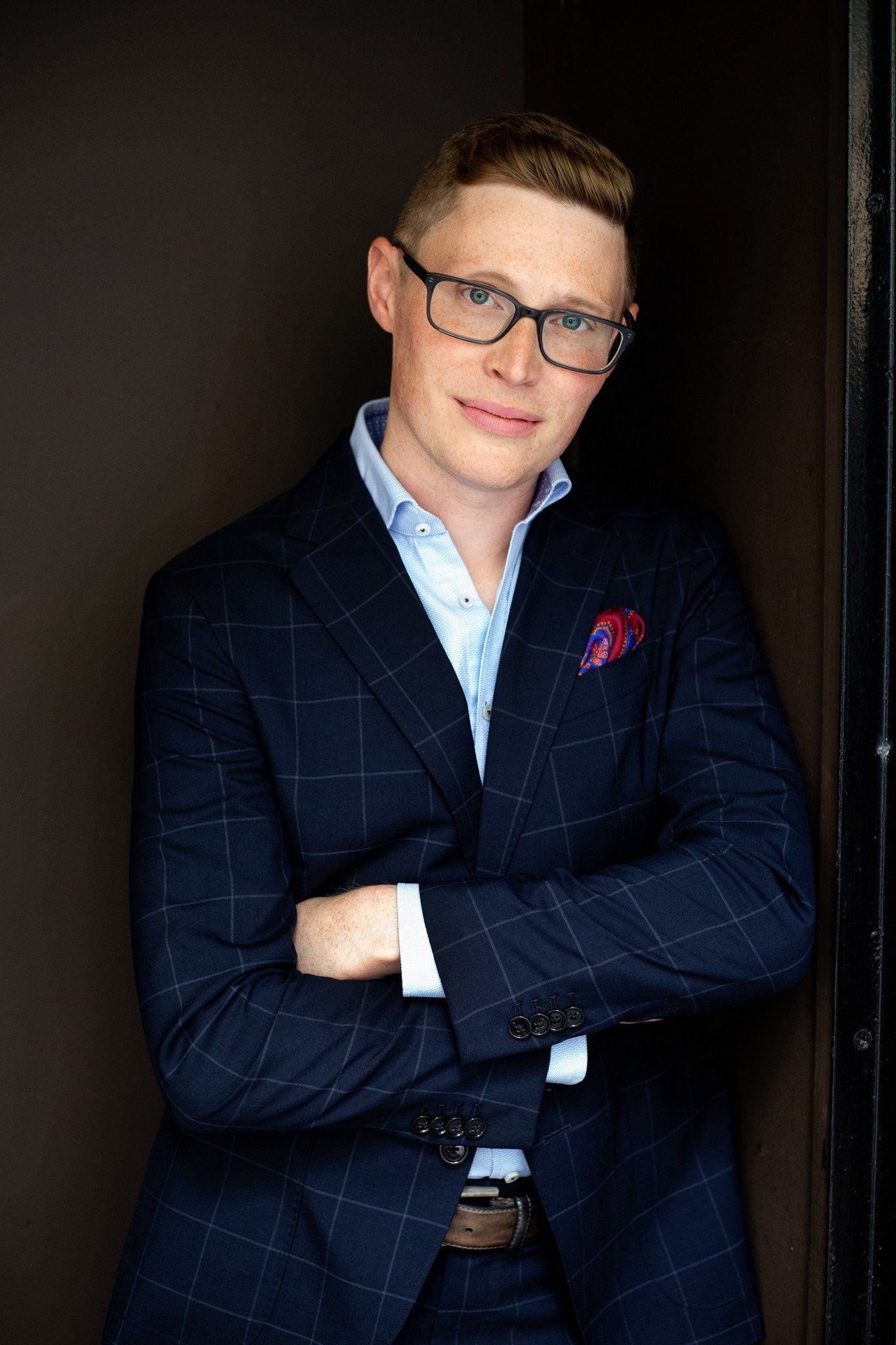
To Catch A Fish
From Dream A New World Trilogy
By Dominick DiOrio
Text by Eloise Greenfield
It takes more than a wish
to catch a fish
you take the hook
you add the bait
you concentrate
and then you wait
you wait you wait
but not a bite
the fish don’t have
an appetite
so tell them what
good bait you’ve got
and how your bait
can hit the spot
this works a whole
lot better than
a wish
if you really
want to catch
a fish
When I selected this poem to be a part of our
Dream A New World Trilogy, I was struck by the simplicity of this poem and loved the bigger message that it conveyed. In our current world of instant responses and gratification, this message of patience and active hard work to get what you want is a perfect reminder for our young singers. We were delighted to premiere this composition at the Intersections Festival this past March.
Stardust
By B.E. Boykin
Text by Brittny Ray Crowell
In “Stardust," the singers call for “a home where we can run” in memory of Ahmaud Arbery, “a home where we can pray” in memory of the victims of the Mother Emanuel shooting, “a home where we can breathe” in memory of George Floyd, and a home “to sleep and dream without fear” in memory of Breonna Taylor. When we sing, we pray twice, and it is my prayer that this piece stirs all who hear it to call for justice for the people of color taken from this world before their time and without concern for their humanity. Marcus J. Jauregui
The Bantu text “Kum Buba Yali, Kum Buba Tambe” is based on the story of the enslaved Africans that sang these words as they leaped from a slave ship coming up on the islands near St. Simons, Georgia in their attempt to “fly back home,” known as the flying African legend. Within many African legends, singing and flying are often woven together as a form of lifting their spirits towards the heavens, towards freedom, towards hope. Children’s author Virginia Hamilton explains that tales “created out of sorrow” carry Black Americans forward.
As Brittny Crowell’s text states:
We cry your names
For the strength to keep on fighting
With the hope that you are flying.
If You Want to Go
By Philip E. Silvey
If you want to go fast, go alone.
If you want to go far, go together
African Proverb
The exact origin of this proverb is unknown, but several scholars of African cultures highlight this proverb as representative of the Africanist perspective focused on collaboration and community and less about what we can do individually. Similar to the proverb “It Takes a Village …” the proverb also addresses the moral well being of the community and the collective social responsibility of a society and how we each play a significant role.
Praise Song For the Day
From Dream A New World Trilogy
By Dominick DiOrio
Text by Elizabeth Alexander
Each day we go about our business,
walking past each other, catching each other's
eyes or not, about to speak or speaking.
All about us is noise. All about us is
noise and bramble, thorn and din, each
one of our ancestors on our tongues.
Someone is stitching up a hem, darning
a hole in a uniform, patching a tire,
repairing the things in need of repair.
Someone is trying to make music somewhere,
with a pair of wooden spoons on an oil drum,
with cello, boom box, harmonica, voice.
A woman and her son wait for the bus.
A farmer considers the changing sky.
A teacher says, Take out your pencils. Begin.
We encounter each other in words, words
spiny or smooth, whispered or declaimed,
words to consider, reconsider.
We cross dirt roads and highways that mark
the will of some one and then others, who said
I need to see what's on the other side.
I know there's something better down the road.
We need to find a place where we are safe.
We walk into that which we cannot yet see.
Say it plain: that many have died for this day.
Sing the names of the dead who brought us here,
who laid the train tracks, raised the bridges,
picked the cotton and the lettuce, built
brick by brick the glittering edifices
they would then keep clean and work inside of.
Praise song for struggle, praise song for the day.
Praise song for every hand-lettered sign,
the figuring-it-out at kitchen tables.
Some live by love thy neighbor as thyself,
others by first do no harm or take no more
than you need. What if the mightiest word is love?
Love beyond marital, filial, national,
love that casts a widening pool of light,
love with no need to pre-empt grievance.
In today's sharp sparkle, this winter air,
any thing can be made, any sentence begun.
On the brink, on the brim, on the cusp,
praise song for walking forward in that light.
After waiting for two years, we were so excited to finally have the opportunity to premiere this movement in March at the Atlas Intersections Festival. The text was written by Elizabeth Alexander for President Obama’s Inauguration in 2009. I was fortunate to be present among the participants and vividly remember that historic day and the optimistic energy that was so apparent. Alexander’s words clearly commemorated the hard work of our ancestors in building our country’s foundation and praising the belief in striving to continue to do your best work. Having all voices represented in this piece was important to showing the power of all of our voices towards a better future.
One Step
By Jocelyn Hagen
What is the meaning of success?
What does it mean to me?
How do I get there?
Do I have reason to be scared?
No. Never give up.
No. Never give in.
One step
Take another step
Take a step down
Take a step back
Turn around, look around
Take a step up
Spreading out, standing proud,
Stepping up, singing loud!
One step
Step up!
"One Step" is about embracing the messy journey and being OK with the idea that not every movement is a step in the upward direction. But it’s a step nonetheless, and oftentimes a step back or down is exactly what we need to learn something new or gain a new perspective. The important thing is that we keep moving, and we keep trying. By J. Hagen
O Pastorelle, Addio
From the opera Andrea Chénier
arr. Emile H. Serposs
O Pastorelle, addio!
Ci avviamo verso lidi ignoti e strani!
Ahi! Ahi! sarem lungi diman!
Questi lochi abbandoniamo! Ahi! Ahi!
Non avrà, fino al ritorno,
più gioie il cor.
Ahi! Ahi! Sarem lungi diman!
Now is the time for parting!
To shores far away and lonely,
we travel without you!
Ah! Ah! Far away we must go!
This dear land we love forevermore!
Joy and gladness we must leave behind
until we meet again.
This song of farewell is written by Italian composer Umberto Giordano and demonstrates his lyrical dramatic style of writing. As with any journey, saying farewell and leaving what you know and the people you love is one of the hardest parts of taking a step towards something different. This piece seemed to reflect the emotions we feel towards saying farewell to loved ones and was the perfect segue towards the next piece on the program.
Dayung Sampan
Trad. Singaporean Folk Music
arr. Darius Lim
Dayung sampan, dayung dayung sampan
Datang dari negara Cina sampai Singapura
Dayung mendayung sampai ke Singapura
Dayung Dayung!
Row the sampan (boat), row row the sampan
Anchored in the port in a Chinese town, you have come to Singapore
An oar to row your sampan to Singapore
Row row!
"Dayung Sampan" was originally an Indonesian folk song that was later adapted by immigrants who came to Singapore in the 19th century. This rendition of the folk song shares the idea of the fearless immigrants traveling by sea to Singapore’s sunny shores in search of a new life, where despite the highly dangerous voyages, travelers were spurred on by the promise of a better life. - Darius Lim
Rise Up
From speeches and writings by Susan B. Anthony
Rise up!
There shall never be another season of silence.
Deepen your sympathy then convert it to action.
Pray every single second of your life, not on your knees but with your work.
Think your best thoughts,
speak your best words,
do your best work.
There is so much yet to be done.
Rise up!
This piece was commissioned in 2016 by the ACDA Women’s Choir Commission Consortium using text from Susan B. Anthony over 150 years ago. Her words continue to be an important message in today’s world.
Hope Lingers On
My mother, when love is gone,
In our darkest hour, hope lingers on,
My father, when peace is gone,
In our darkest hour, hope lingers on,
I will not hate, and I will not fear,
In our darkest hour, hope lingers here,
My sister, when equality’s gone,
In our darkest hour, hope lingers on,
My brother, with tolerance gone,
In our darkest hour, hope lingers on,
I will not hate, and I will not fear,
In our darkest hour, hope lingers here,
My love, when honor is gone,
In our darkest hour, hope lingers on,
My country, when justice is gone,
In our darkest hour, hope lingers on,
I will not hate, and I will not fear,
In our darkest hour, hope lingers here.
"Hope Lingers On" (originally recorded by folk group
Low Lily and written by Lissa Schneckenburger) is a heartfelt, timely, and determined call for optimism.
I’m Always Chasing Rainbows
By Harry Carroll
arr. Carl Strommen
I'm Always Chasing Rainbows,
Watching clouds drifting by,
My schemes are just like all my dreams,
Ending in the sky.
Some fellows look and find the sunshine,
I always look and find the rain,
Some fellows make a winning sometime,
I never even make a gain.
Believe me, I'm Always Chasing Rainbows,
waiting to find a little bluebird in vain.
Like many other songs, “I’m Always Chasing Rainbows” became an instant hit in a musical no one remembers. The song was published in 1917 and introduced in the Broadway show
Oh Look!
in 1918. The music is credited to Harry Carroll, but the melody is adapted from
Fantaisie-Impromptu
by Frédéric Chopin. The song was sung in the show by the Dolly Sisters. Since then, the song has appeared in the movie
Rose of Washington Square (1939) and
Ziegfeld Girl
with Judy Garland (1941). It has also been performed and recorded by several other artists.
The Vagabond
By Ralph Vaughan Williams
arr. Gary Lewis
Give to me the life I love
Let the lave go by me
Give the jolly heaven above
And the byway nigh me
Bed in the bush with stars to see
Bread I dip in the river—
There’s the life for a man like me
There’s the life for ever
Let the blow fall soon or late
Let what will be o’er me;
Give the face of earth around
And the road before me
Wealth I seek not, hope nor love
Nor a friend to know me;
All I seek, the heaven above
And the road below me
Or let autumn fall on me
Where afield I linger
Silencing the bird on tree
Biting the blue finger
White as meal the frosty field—
Warm the fireside haven—
Not to autumn will I yield
Not to winter even!
Let the blow fall soon or late
Let what will be o’er me;
Give the face of earth around
And the road before me
Wealth I ask not, hope nor love
Nor a friend to know me;
All I ask, the heaven above
And the road below me
Composed by Ralph Vaughan Williams, the piece is a standard in baritone solo repertoire. Lewis’ arrangement has turned it into a wonderful opportunity to explore the classic art song style as an ensemble. “The Vagabond”
is the first song in a nine-part song cycle known as
Songs of Travel
with text drawn from the poems of Robert Louis Stevenson. The song sets the scene for the traveler.
Ubuntu
By Christi Jones
Indele inde
Sihamba kude
Ndiyaba kuba siyaba
Akubi
Ndilapha
Siyaba
Singabhuti
Translation:
The road is long
We have traveled far
I am because we are
You are not alone
I am here for you
We are strong together
We are brothers
“One of the sayings in our country is Ubuntu: the essence of being human.”
Ubuntu speaks to the fact that one can’t exist as a human being in isolation. It speaks to our interconnectedness and how it’s not possible to be human all by yourself. When people possess the “Ubuntu” quality, they are known for their generosity. We think of ourselves far too frequently as just individuals, separated from one another; however, each one of us is connected and what each person does affects the whole world. “When you do well, it spreads out; it is for the whole of humanity.” -Nelson Mandela
Pure Imagination
By Leslie Bricusse and Anthony Newley
arr. Matthew D. Nielson
Come with me and you'll be
In a world of pure imagination
Take a look and you'll see
Into your imagination
We'll begin with a spin
Traveling in the world of my creation
What we'll see will defy
Explanation
If you want to view paradise
Simply look around and view it
Anything you want to, do it
Want to change the world?
There's nothing to it
There is no life I know
To compare with pure imagination
Living there, you'll be free
If you truly wish to be
The original score was written for the 1971 film
Willy Wonka & the Chocolate Factory. “Pure Imagination” was featured in the movie when Wonka and the children first enter the room entirely made of candy. The song conveys a message of discovering wonder and magic in our everyday lives. Our ordinary lives can be liberated from expectations and inhibitions through our choices.
Thank You For the Music
By ABBA/Rent/Caldwell
Congratulations, Class of 2022 Seniors!
Shine the Light
By Raymond Wise
Shine the light for all the world to see.
Shine the light all across the land and sea.
Ev'rywhere you go, shine God's light so men may know Him.
Let it shine. Let it shine. Let it shine.
This little light of mine.
I'm gonna let it shine.
This little light of mine.
I'm gonna let it shine.
This little light of mine.
All over the world I'm gonna let it shine.
Let it shine. Let it shine. Let it shine.
Ev'rywhere I go I'm gonna let it shine.
Let it shine. Let it shine. Let it shine!
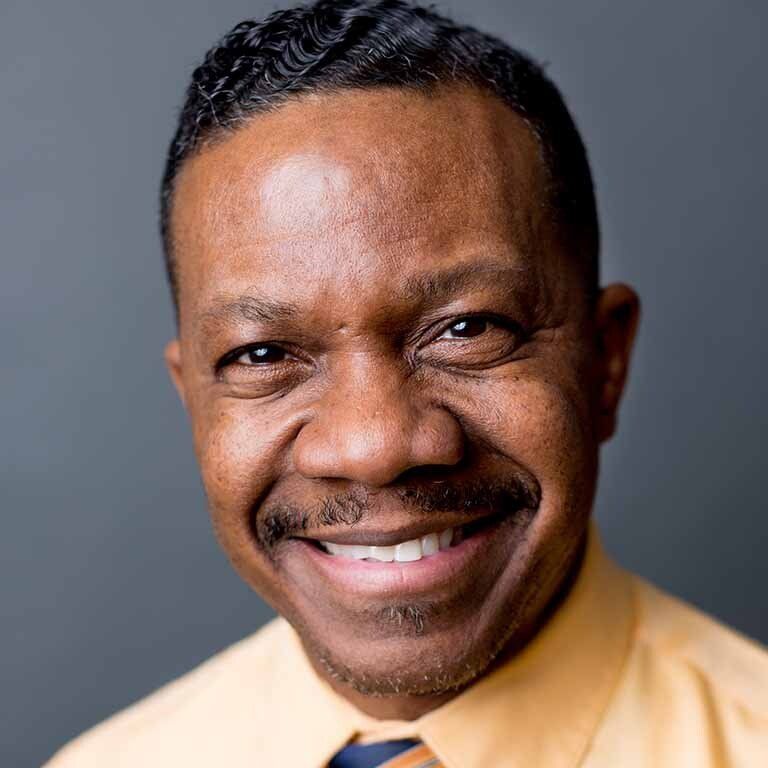
Make a Gift
If you liked what you heard today, please consider including CCW in your giving plans. You can make a recurring gift, or a one-time donation of any amount to support our work.
Thank you for joining us! Look for our 2022-2023 season announcement on June 1!

